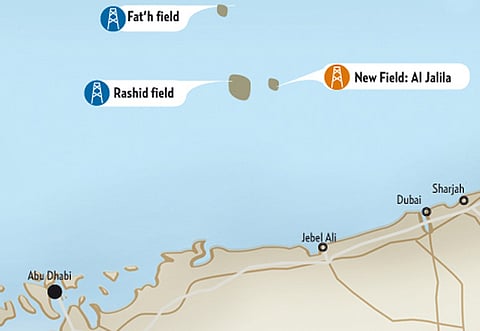Dubai oilfield to start production this year
Commercial production at Dubai’s newest oil field, Al Jalila, to begin this year

Dubai: Al Jalila oilfield in Dubai is on track to begin operations before the end of this year, a conference was told yesterday.
Shaikh Ahmad Bin Saeed Al Maktoum, Chairman of the Supreme Council of Energy, confirmed a government statement issued earlier this year which predicted full-scale commercial production at the field within a year.
The statement added that Al Jalila should "notably increase the production of crude in Dubai, whose current oil reserves are about 4 billion barrels."
Speaking to reporters in Dubai yesterday, Shaikh Ahmad said: "God willing, it will start this year," but declined to elaborate on production levels.
Commenting on the business outlook for Dubai, Shaikh Ahmad said the Government is satisfied with the composition of the emirate's economy and urged companies to press ahead with restructuring plans. "I am very happy with the core business of Dubai," which includes trade and tourism, said Shaikh Ahmad. "There are some companies that must continue to work on their restructuring."
Samuel Ciszuk, senior Mena energy analyst with IHS Energy, said yesterday that the overall importance of the field was unclear.
"All additions will make a difference to Dubai, given its small and declining overall output," said Ciszuk.
Bank's position
"However it is likely not a particularly large field. The feeling seems to be that it will slow the decline over the coming decade, rather than reverse it, but again, that is only a guess."
Ciszuk added that the speed with which Dubai has been able to develop the field indicates that it is likely to be very small, but that in light of the announcement, work was likely to be completed soon.
Speaking at the annual Middle East Petroleum and Gas Conference in Dubai, Shaikh Ahmad also said that UAE banks are sufficiently liquid to support the country's economic growth and the problems in Europe and US have no direct impact on the country's financial system.
The UAE's average sustainable crude oil production capacity is set to increase 12.5 per cent to 3.06 million barrels per day by 2014, according to estimates by the Paris-based International Energy Agency (IEA).
— With inputs from Himendra Mohan Kumar and agencies



